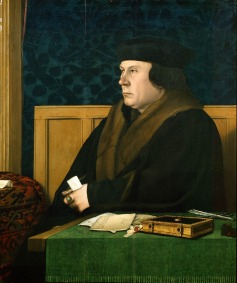Sonnet 18 is generally regarded as one of Shakespeare’s best and most accessible poems.

On the surface, it is a love poem but it is also a poem about the nature of beauty, mortality and poetry.
Shall I compare thee to a summer’s day?
Thou art more lovely and more temperate.
Rough winds do shake the darling buds of May,
And summer’s lease hath all too short a date.
Sometime too hot the eye of heaven shines,
And often is his gold complexion dimmed;
And every fair from fair sometime declines,
By chance, or nature’s changing course, untrimmed;
But thy eternal summer shall not fade,
Nor lose possession of that fair thou ow’st,
Nor shall death brag thou wand’rest in his shade,
When in eternal lines to Time thou grow’st.
So long as men can breathe, or eyes can see,
So long lives this, and this gives life to thee.
This sonnet opens with a question in the first line which is answered and then explained in the next six lines which focus on the transient nature of beauty.
The phrase the darling buds of May has a meaning slightly different from the way it would be interpreted today. Darling not only means dearly loved but has an older meaning of emerging to maturity and greater beauty. This is a more likely interpretation given the next line given that the idea of the passing of time is continued with:
And summer’s lease hath all too short a date
where the transitory nature of the lease combines with the rough winds to make beauty all the more fleeting.
Even the sun is part of the variability of nature Sometime too hot but often with his gold complexion dimmed.
In the next line there is a typical Shakespearean device where one word is given to slightly different meanings.
And every fair from fair sometime declines
Here the first fair means beauty so that everything that is beautiful will eventually decline from that state of beauty.
In the next line, the word untrimmed is not the opposite of trimmed, where trimmed is tidy and untrimmed is untidy. Here, trimmed means decorated, made beautiful, so untrimmed means made less beautiful or destroyed.
The final six lines of the poem contrast the eternal beauty of the subject (and the sonnet itself) with the transient nature of natural beauty described in the first part of the poem.
But thy eternal summer shall not fade,
Nor lose possession of that fair thou ow’st
Here the word ow’st means own as in possess.
The next line is a strangely biblical reference
Nor shall death brag thou wand’rest in his shade,
When in eternal lines to Time thou grow’st.
and echoes Psalm 23.4
Yea, though I walk through the valley of the shadow of death
This quote is from the St James version of the Bible and it is highly unlikely that Shakespeare would have being familiar with this version but he would certainly have had heard the psalm read from the great Bible that was commissioned by Henry VIII’s Chief Minister Thomas Cromwell.

The sonnet ends with a couplet that ties up the argument of the question and response of the first 12 lines.
So long as men can breathe, or eyes can see,
So long lives this, and this gives life to thee.
This ending is typical of the sonnets with final lines often shifting meaning of the poem or sometimes even reversing it. In the first part of the poem, the poet says
thy eternal summer shall not fade
But the final couplet qualifies this.
So long lives this, and this gives life to thee.
Here the poet is referring to the poem, not the beauty of the subject. The immortality of the beauty only exists in poetry. And it is ironic that 400 years after the poem was written all that survives of the physical beauty of the subject is this poem.
The gentle irony of the poem is that while the poet praises the beauty of the subject, the immortality of beauty is the immortal beauty of poetry.
Many scholars believe that this poem belongs to the “Fair Youth sequence” where the subject of the sonnets is a young man, presumably the poet’s lover. believed to be Henry Wriothesley, the third Earl of Southampton.

However, this poem makes no reference to a lover, male or female. The poem is dedicated to someone of great beauty and the poet immortalises that beauty in his poetry.
